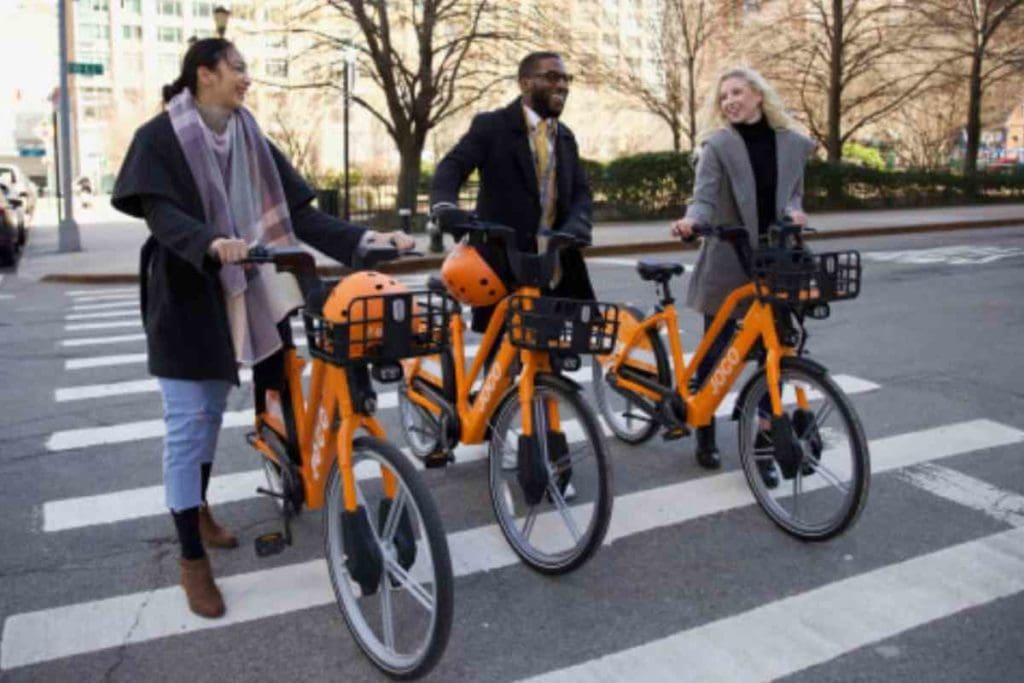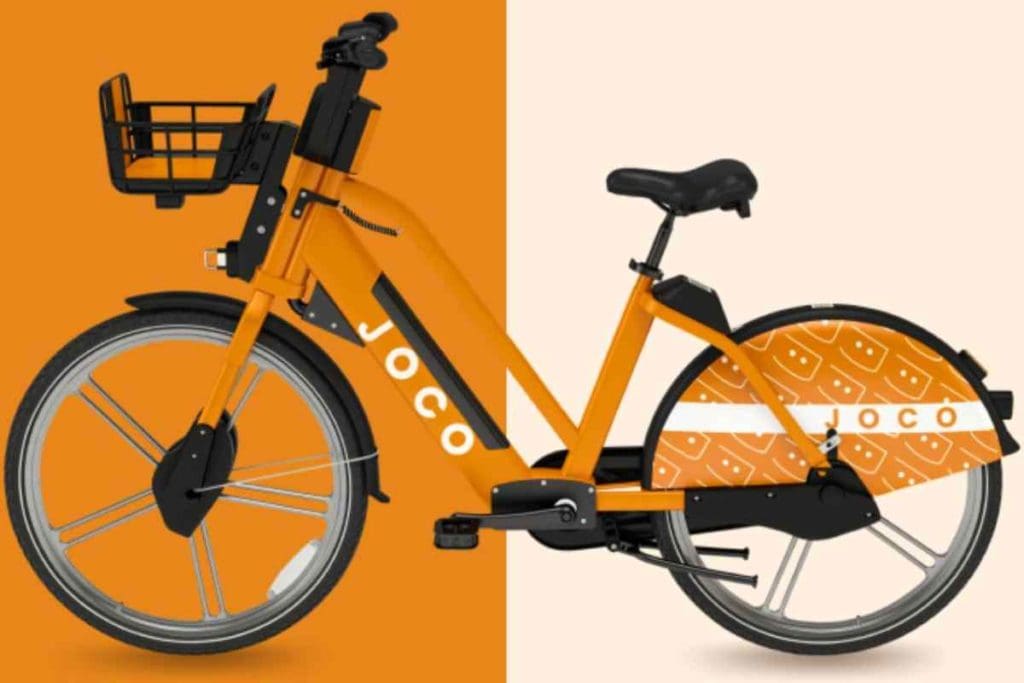Another Bike Share Scheme Launches in New York City

New York City, New York, USA
In New York City, the dominant micromobility option is Citi Bike, the official bike-sharing system of the city. Other transit alternatives aren’t as easy to come by, thanks to complex permit processes for companies looking to station vehicles in public spaces.
E-scooter companies Bird, Lime, and Veo, for instance, will launch in the East Bronx this summer, but only for small pilots. But one micromobility company wants to try a new model: putting its sharable bikes on private property instead.
Vulog, a company providing tech solutions for shared mobility operators, has partnered with ‘micro-mobility ride-share company’ Joco to provide a new fleet of e-bikes to New Yorkers—but the model is more distinct than others. Rather than taking over sidewalks or streets with docks, or dockless bikes, Joco’s bikes will be stationed on private properties across the city, “out of the public right of way,” bypassing the intense permitting and regulations and allowing riders to reserve, pick up, and drop off at any of these locations. The initiative aims to show that private and public options can work together to meet the high demand for transport options.
As cities tackle the massive emissions associated with transportation, it’s not enough to just push for more electric vehicles—they have to provide transit options to replace car trips. “We know there’s a clean-energy revolution happening,” said Monica Wejman, Managing Director at Vulog. “But switching vehicles and fleets to EVs alone is not going to solve the major congestion issues that cities like New York are facing.”
Initially, Joco is launching with 30 stations around Manhattan, with an average of 10 to 12 bikes per station, and will have a total of 100 stations by June. The stations, situated around Manhattan from 8th Street to 90th Street, will mainly be in parking garages at the bases of apartment blocks, offices, and hotels, where Joco has paid for leases. There will be bike docks at the Moxy Hotel in Times Square, at an apartment block of 400 units in Flatiron, and at a 6th Avenue office building near Rockefeller Plaza. Joco has also secured a partnership with Icon Parking, one of the biggest garage operators in Manhattan. The incentive for building owners is that the bikes are an extra amenity for residents and staff—and the owners will get a share of Joco’s revenue, says Jonny Cohen, one of the two co-founders. Actually, both co-founders are named Jonny Cohen, one American and one British, and “Joco” is a portmanteau of their shared name.

Unlike with Citi Bikes, users will be able to reserve the e-bikes via smartphone; they’ll be charged US$1 for unlocking, plus US25¢ per minute of use, versus Citi Bike’s US$3.50 per single ride under 30 minutes and US18¢ per minute thereafter.
Citi Bike also has a small number of electric bikes, estimated at 1,000 at the end of 2020, which cost an extra US18¢ per minute on top of the usual price.
Powering the fleet will be Vulog’s AiMA system, which provides the management software for sustainable mobility solutions across the world, including a car-sharing service in Vancouver, three-wheeled scooters in Paris, and a light electric vehicle fleet in Rotterdam. Joco says it will be the first of its kind in the U.S. to offer a private, docked system in a city that already has a robust public, docked bike system.
“There’s no denying that 2020 catapulted cycling adoption ahead by years,” Wejman said. Joco aims to expand to other boroughs—Brooklyn by the summer—and other cities, if the concept is proven in New York. It would also like to consider branching out to other ride-sharing options, including e-scooters, mopeds, and smaller cars. The company’s ethos, Cohen says, is that you don’t need a car to travel a mile. “We see the future as not being two-ton, gas-emitting cars,” he says. “The future for us is electric, and it’s green, and it’s in smaller vehicles.”
In subsequent developments, New York City officials have launched legal action against Joco in an attempt to protect Citi Bike’s monopoly in the city.
But in early may a court denied a temporary restraining order to prevent the company operating. Therefore it will continue at least until the next court hearing scheduled for 16th June.
A longer version of most of this article first appeared in Fast Company.
